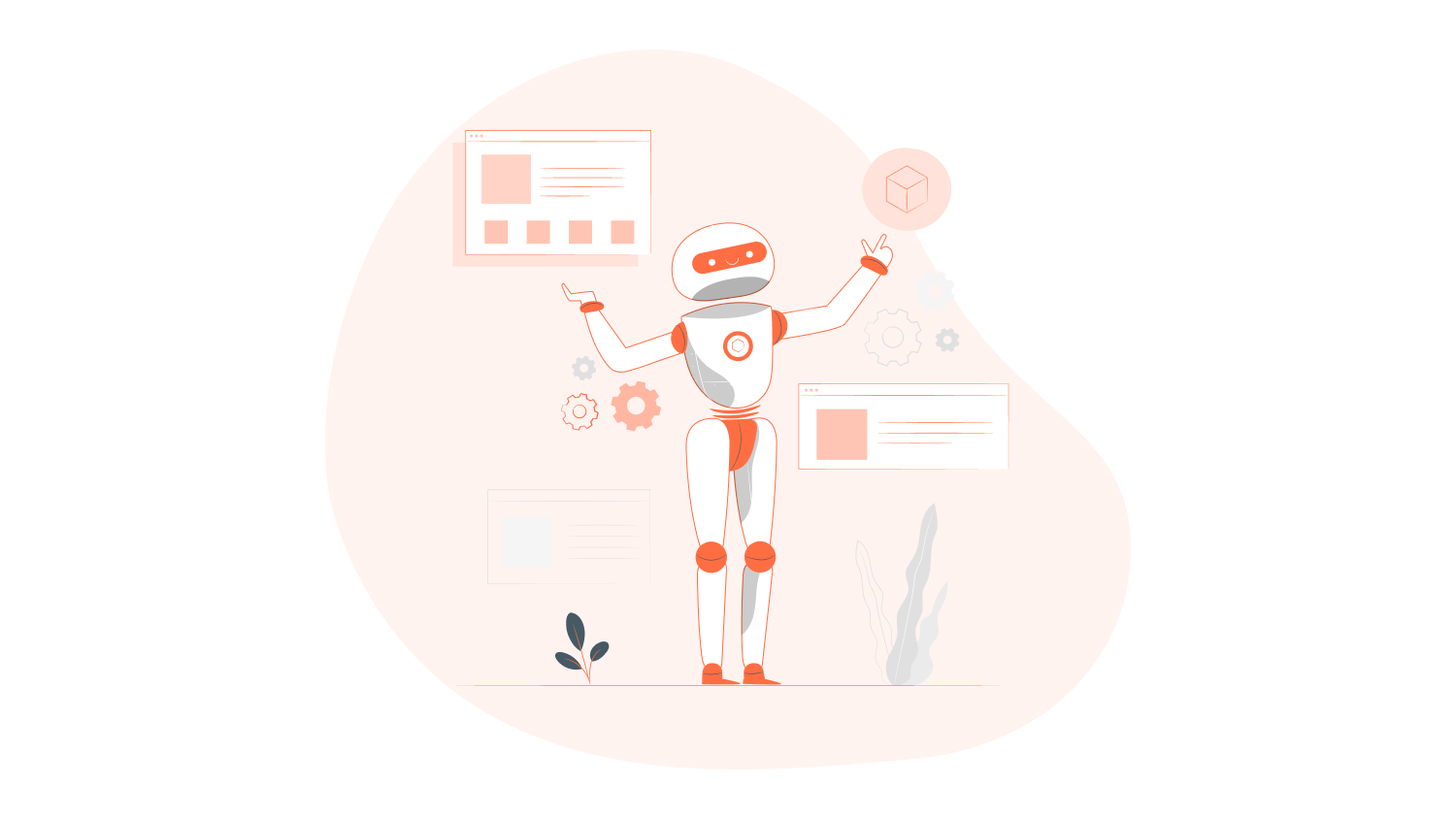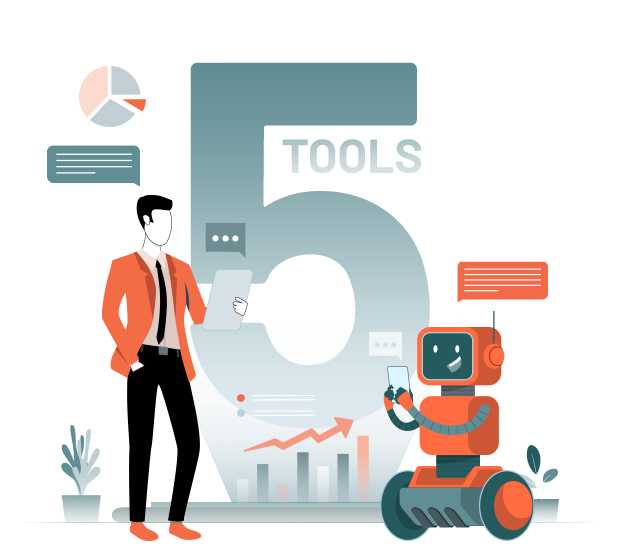Various industries now embrace new ways of marketing. One of these new approaches is AI Marketing, used by marketing leaders over the years, with figures of 29% in 2018 to a staggering 84% in 2020.
AI marketing and other intelligent tech solutions enhance operations, making them more efficient, especially customer experience design and delivery. Comprehensive, nuanced insights are within reach through AI-driven solutions.
It can also bring in a more significant customer pool. Indeed, the advantages of AI help businesses, despite the doubts and lack of helpful info that people have about it.
What is AI marketing?
It is a form of marketing that uses and utilizes to gather customer data. That data, in turn, is helpful for marketers as they study how to budget for marketing, create content, and personalize the overall consumer’s journey.
Through intelligent systems, AI ushers in a different age in gaining customer loyalty, primarily through digital means. Integration of intelligent algorithms in marketing software help businesses draws decisions from data, helping them improve revenues.
Artificial Intelligence Marketing has also strong involvement. It can be used in combination with augmented reality as a tool for lead generation. Both AR and marketing driven by artificial intelligence bring about so many innovations that cater to how people consume products and services moving forward. Marketers now get better insights into how people interact and create experiences because of these two strategies.
Did you know?
According to a study done by Statista, the global artificial intelligence (AI) software market is to grow rapidly in the coming years and could reach around 126 billion U.S. dollars by 2025.
Challenges of AI marketing
Although AI is getting more powerful day by day it still has some limitations. Some of them are due to ethical concerns. Others are caused by an insufficient amount of financial and human resources. Let’s break down each of these challenges one by one.
Lack of trust
Despite the benefits of Artificial Intelligence marketing that brings, companies and people in business still meet it with skepticism. For one, when data culled through it falls into the wrong hands, it may lead to grave concerns, including the possibility of having programmable weapons.
Others also do not trust AI due to the copious amounts of data it can gather and analyze, some of which may be highly personal. Threats of identity theft and data breaches abound according to public perception.
However, it pays to know that there are measures that address this lack of trust. An example is the implementation of the General Data Protection Regulation (GDPR) by the European Union, protecting individual info even when used for marketing purposes.
AI demands high investment
Effective costing is crucial in any business, and others surmise that AI-powered marketing requires heavy budgets. Incorporating this strategy into the company may be costly, primarily due to the automation of the processes with the customer’s journey and overall improvements in user experiences.
Companies can weigh the cost of the investments they may incur. If you are just starting your business, then, automating marketing operations may not necessarily be a priority right at the moment.
Lack of talent
Since AI marketing tends to be complex and requires technical know-how, another concern is finding the right talent and people to handle and execute it. There are algorithms and computational power that require a specific skill set for AI-related tools and software.
Before jumping into AI, businesses must look at the roster of employees they need and if there is a way to outsource needed personnel or consultants. Another way to make AI work is through partnerships with third-party providers that can help collect, analyze, and maintain data and the needed AI training programs for employees interested in Artificial Intelligence and data science.
Job losses
Yet another challenge with AI marketing is how it poses a threat to human resources and skilled labor. Some think that AI-based technologies may eventually displace marketers and that companies would settle for machinery and big data to do all the work needed.
Some even make bold predictions that AI will eventually replace 6 out of 10 marketing analysts and specialists.
However, the workforce remains an integral part of marketing despite this possible danger, especially since people skills are hard to pass down to machines. Instead, what marketers do with AI is find ways to make both actual labor and AI complement each other towards attracting and retaining clientele.
Privacy and regulations
Aligned with AI marketing implementation is the proper adherence to privacy regulations. Organizations must know the boundaries they need to put up regarding data on their prospective and current consumers
To avoid this risk and damage their reputation and pay potential fines, companies that do AI-driven marketing should follow regulating bodies, one of which is the GPDR (mentioned earlier).
Consumers need not worry about infringement of their rights, given the tightening of security measures over the years. Regulatory bodies even prohibit the storage of offsite data.
Ethical concerns
Finally, another big challenge is its ethics. Some believe that there are ethical issues, including privacy intrusion and questionable data gathering.
However, digital marketers still deem AI-led marketing crucial, especially in generating growth. They combat ethical concerns by ensuring they gather data with transparency, that the use of technology only benefits customers, and that the activities related to marketing are still within human rights and promote inclusion.
Companies should be ready for any accountability and give clear explanations regarding AI-driven practices.
Also Read : SaaS Marketing: Best Practices For Customer Acquisition And Retention
Tackling AI marketing’s biggest challenges
Indeed, this form of marketing is far from perfect, but one cannot deny its advantages. It has complete, relevant, accurate, consistent, and timely data that businesses need to increase their audience reach, boost engagement, generate leads, and ultimately, increase and hasten conversions..
Improve the data collection and handling
The first solution is to look at how you can further improve your data collection, use, and management when using AI in marketing.
There are measures that can help address the trust issues surrounding the use of AI not only in marketing but for other purposes. An example is the implementation of the General Data Protection Regulation (GDPR) by the European Union, protecting individual info even when used for AI in marketing purposes.
Maintain transparency while collecting data
There are other actions that can be considered as well. For instance, simply being more transparent by disclosing more info regarding data collection and handling as well as improving your cybersecurity procedures can help in alleviating the general anxiety surrounding AI. It can even address privacy and ethical concerns.
Outsourcing
Another solution is to consider outsourcing your talent. Hiring freelancers can help you get the talent you need without the need to invest in extensive training. In addition, it can also open new job opportunities, especially for those who are looking into shifting their career toward Artificial Intelligence.
Finally, you should keep yourself updated. There are changes happening in AI marketing every day. We’re sure that there are experts that are trying to find solutions to the challenges we’ve posed above. Good luck!
Suggested Read: Types of IT Outsourcing Models to Grow Your Startup and How to Pick the Best One
Takeaway
Given the clarity of advantages that AI marketing brings, including having complete, transparent, relevant, accurate, consistent, and timely data, businesses might want to consider its use to generate leads and conversions. The programs created through AI will more or less provide the needed insights for marketing operations to grow.
On top of that, it triggers improved marketing measures, builds real-time customer life cycles and relationships, and increases campaign ROIs. A business from any field may or may not use artificial intelligence in marketing endeavors.
Responsible implementation is also at hand, provided that a company enforces it. Customers are always king, and businesses must prioritize their protection; otherwise, there are alternatives to AI solutions.
AI marketing is far from perfect, but one cannot deny how promising it is for the years to come.
Want to leverage the power of AI to transform your business? Get in touch with our AI experts for a free consultation.
FAQs
What are the major challenges in AI marketing?
Challenges include data privacy concerns, integration complexity, accuracy of AI predictions, and skill gap.
How can businesses address data privacy concerns in AI marketing?
Ensuring transparent data collection, usage, and compliance with regulations builds trust with customers.
What strategies help tackle integration complexities?
Employing APIs and tools that seamlessly integrate AI into existing systems simplifies implementation.
How can businesses bridge the skill gap in AI marketing?
Training staff, collaborating with AI experts, and leveraging user-friendly AI tools help overcome skill shortages.




